Results 1 to 10 of 18
Thread Information
Users Browsing this Thread
There are currently 1 users browsing this thread. (0 members and 1 guests)
-
09-06-2017, 05:35 PM #1
Facebook says likely Russian-based operation spent money on ads on issues
Facebook says likely Russian-based operation spent money on ads on issues

By Joseph Menn
,Reuters•September 6, 2017

The Facebook logo is displayed on their website in an illustration photo taken in Bordeaux, France, February 1, 2017. REUTERS/Regis Duvignau
More
By Joseph Menn
SAN FRANCISCO (Reuters) - Facebook Inc said on Wednesday it had found that an influence operation likely based in Russia spent $100,000 on ads promoting divisive social and political messages in a two-year-period through May.
Facebook, the dominant social media network, said that many of the ads promoted 470 "inauthentic" accounts and pages that it has now suspended. The ads spread polarizing views on topics including immigration, race and gay rights, instead of backing a particular political candidate, it said.
Facebook announced the findings in a blog post by its chief security officer, Alex Stamos, and said that it was cooperating with federal inquiries into influence operations during the 2016 U.S. presidential election.
The company said it found no link to any presidential campaign. Three-fourths of the ads were national in scope, and the rest did not appear to reflect targeting of political swing-states as voting neared.
Facebook did not print the names of any of the suspended pages, but some of them included such words as "refugee" and "patriot."
Even if no laws were violated, the pages ran afoul of Facebook requirements for authenticity, setting up the suspensions.
More than $1 billion was spent on digital political ads during the 2016 presidential campaign, 10,000 times the amount identified by Facebook's security team.
But the findings buttress U.S. intelligence agency conclusions that Russia was actively involved in shaping the election.
Facebook previously published a white paper on influence operations, including what it said were fake "amplifier" accounts for propaganda, and said it was cracking down.
As recently as June, it told journalists that it had not found any evidence to date of Russian operatives buying election-related ads on its platform.
A Facebook employee said Wednesday that there were unspecified connections between the divisive ads and a well-known Russian "troll factory" in St. Petersburg that publishes comments on social media.
Beyond the issue ads, Facebook said it uncovered $50,000 more in overtly political advertising that might have a link to Russia. Some of those ads were bought using the Russian language, even though they were displayed to users in English.
https://www.yahoo.com/tech/facebook-...--finance.htmlNO AMNESTY
Don't reward the criminal actions of millions of illegal aliens by giving them citizenship.
Sign in and post comments here.
Please support our fight against illegal immigration by joining ALIPAC's email alerts here https://eepurl.com/cktGTn
-
09-06-2017, 07:25 PM #2
Facebook says it sold ads to Russian 'troll farm' during 2016 campaign
by Dylan Byers @CNNMoneySeptember 6, 2017: 7:06 PM ET
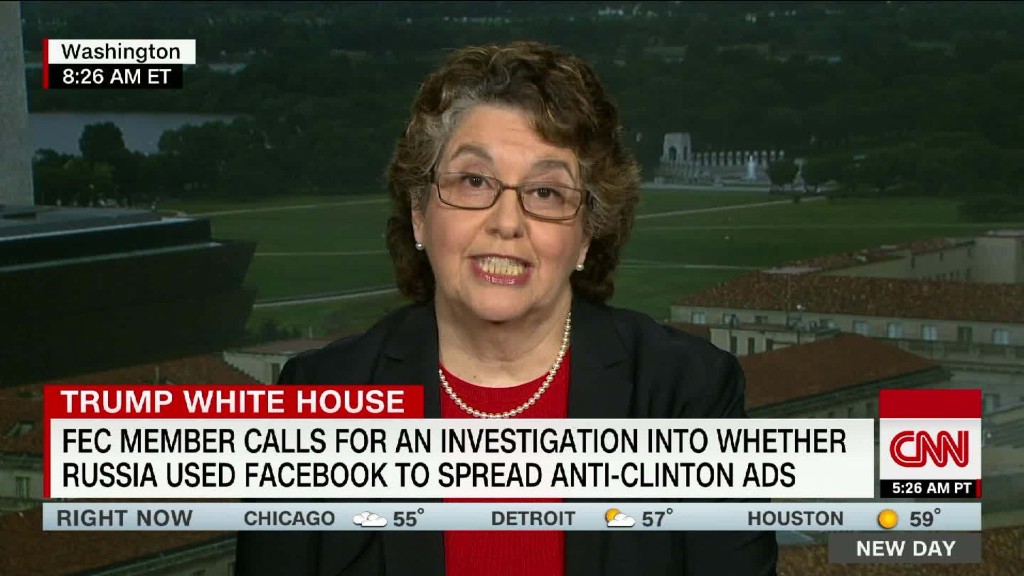
'Extremely frustrating' FEC doesn't ward off potential foreign mone
Facebook told congressional investigators on Wednesday that it sold political ads during the 2016 U.S. presidential election to a so-called Russian troll farm that was looking to target American voters.
"In reviewing the ads buys, we have found approximately $100,000 in ad spending from June of 2015 to May of 2017 — associated with roughly 3,000 ads — that was connected to about 470 inauthentic accounts and Pages in violation of our policies," Facebook Chief Security Officer Alex Stamos said in a statement.
"Our analysis suggests these accounts and Pages were affiliated with one another and likely operated out of Russia," Stamos said.
The revelation, first reported by the Washington Post, comes amid ongoing investigations into Russia's interference in the U.S. election, including the use of social media to spread fake news and propaganda.
The ads -- both traditional advertisements and sponsored posts -- were intended to sow discord among the American electorate by amplifying "divisive social and political messages," Stamos said.
These ranged from "LGBT matters to race issues to immigration to gun rights."
Roughly one quarter of the ads were geographically targeted, Stamos said, though a Facebook spokesperson declined to specify the locations where those ads were targeted.
In an interview with CNN's Wolf Blitzer Wednesday afternoon, Rep. Adam Schiff, a Democrat who is the ranking member of the House Intelligence Committee, said the committee would be looking into the nature of the advertisements, and whether "they were at a level of sophistication where [the ad buyers] would have needed help or assistance from the campaign."
"I think we already knew that the Russians were using paid social media trolls to try to influence the election, try to sow discord, this certainly confirms that finding," Schiff said. "What we want to explore, not only with Facebook, with other social media platforms as well, [is] what evidence, to what degree."
It is possible that there are more shadowy ad buys that Facebook has yet to identify.
In the review presented to Congressional investigators, Facebook said it had found an additional $50,000 in political ad spending during the election from other accounts connected to Russia.
Facebook sells its advertising through a self-service ad model, through which buyers can choose demographic, geographic and interest-based targets, the Facebook spokesperson said. Due to the volume of these ad buys, Facebook said it was unable to identify the inauthentic nature of these ad buys at the time.
In his statement, Stamos said Facebook had shut down accounts involved that were still active. But the company is facing criticism over its decision not to release the ads or explain what role it played in the targeting of these ads.
"It is completely unacceptable that Facebook says it will not release the actual ads it showed to its users," Pierre Omidyar, the entrepreneur and eBay founder, wrote on Twitter.
http://money.cnn.com/2017/09/06/medi...ion/index.html
NO AMNESTY
Don't reward the criminal actions of millions of illegal aliens by giving them citizenship.
Sign in and post comments here.
Please support our fight against illegal immigration by joining ALIPAC's email alerts here https://eepurl.com/cktGTn
-
09-07-2017, 12:28 AM #3
Paid trolls pushing the Russian agendia . . .
NO AMNESTY
Don't reward the criminal actions of millions of illegal aliens by giving them citizenship.
Sign in and post comments here.
Please support our fight against illegal immigration by joining ALIPAC's email alerts here https://eepurl.com/cktGTn
-
09-07-2017, 03:10 PM #4Senior Member

- Join Date
- Mar 2006
- Posts
- 7,377
Imagine that another country would spend money to have an effect on our elections. Unbelievable - good gracious.
Russia and Israel aren't the only countries 'interested' in our elections. I would imagine China poured some into it as well. Don't I remember something about the Clintons taking money from someone connected to the Red Chinese army?
As for trolls, or paid posters. I don't do facebook, so I don't know how it works there, but I've recognized what I feel sure are paid posters on sites. It's not too hard to do, they seem to all be using the same playbook.
How much do we spend influencing other countries' election?
Much of what we do isn't as benign as running ads, we do many more destructive things.
-
09-09-2017, 04:55 PM #5
30 Batsh*t Crazy, Mostly Racist Facebook Memes the Russians Used to Corrupt Your Mind
Facebook finally admitted that the Russians tried to weaponize the social network to sway the election. Here are some of the arms in that propaganda arsenal.
KEVIN POULSEN
09.09.17 12:00 AM ET
FACEBOOKEarlier this week, Facebook’s chief security officer, Alex Stamos, revealed that Russia had “likely” used 470 deceptive accounts to buy about $100,000 worth of political advertising before and after the 2016 presidential election. It was Facebook’s first public acknowledgment of the role it unwittingly played in the Kremlin’s “active measures” campaign to help elect Donald Trump. Based on the numbers, a Facebook marketing expert consulted by The Daily Beast says the Facebook run might have reached 70 million people.
The admission was a sharp turnaround for Facebook.
As recently as July, the company was denying that it had evidence of Russian ad-buys, even though four months earlier the Russian news outlet RBC specifically identified one of the Facebook communities secretly run from Russia and promoted with paid Facebook ads.
That community, called SecuredBorders, positioned itself as the work of conservative Americans concerned about U.S. border security. In truth, according to RBC, it was operated by a notorious St. Petersburg troll factory called Internet Research Agency, which is financed by “a close Putin ally with ties to Russian intelligence,” according to a public report by U.S. intelligence agencies (PDF).
Facebook finally closed down the page last month in its belated purge of Russian propaganda. By then SecuredBorders had 133,000 followers.
So far, Facebook is refusing to release any of the posts and ads from Russia’s campaign, opting instead for this terse description: “The ads and accounts appeared to focus on amplifying divisive social and political messages across the ideological spectrum—touching on topics from LGBT matters to race issues to immigration to gun rights.”
That sanitary language doesn’t do justice to the actual content. The Daily Beast scoured search engine caches and found remains from the now-shuttered SecuredBorders page, just one of Russia’s propaganda communities, including dozens of their posts and graphics. Here’s a collection of the Russian Facebook memes we recovered.
FACEBOOK
FACEBOOK
FACEBOOK
FACEBOOK
FACEBOOK
FACEBOOK
FACEBOOK
FACEBOOK
FACEBOOK
FACEBOOK
FACEBOOK
FACEBOOK
FACEBOOK
http://www.thedailybeast.com/30-bats...rupt-your-mind
NO AMNESTY
Don't reward the criminal actions of millions of illegal aliens by giving them citizenship.
Sign in and post comments here.
Please support our fight against illegal immigration by joining ALIPAC's email alerts here https://eepurl.com/cktGTn
-
09-10-2017, 03:01 PM #6Senior Member

- Join Date
- Mar 2006
- Posts
- 7,377
And we know the Russians actually posted these - how?????
But when you look at the ads, what's wrong with most of them. Some are a just silly -- but some are spot on.
Anyone can route their emails through Russia.
-
09-10-2017, 04:56 PM #7
Background to “Assessing Russian Activities and Intentions in Recent US Elections”: The Analytic Process and Cyber Incident Attribution
https://www.dni.gov/files/documents/ICA_2017_01.pdfNO AMNESTY
Don't reward the criminal actions of millions of illegal aliens by giving them citizenship.
Sign in and post comments here.
Please support our fight against illegal immigration by joining ALIPAC's email alerts here https://eepurl.com/cktGTn
-
09-10-2017, 05:35 PM #8Senior Member

- Join Date
- Jan 2012
- Posts
- 4,815
Some of the ads are wonderful. We all know what Russia is capable of and masters at.
-
09-10-2017, 06:03 PM #9Senior Member

- Join Date
- Mar 2006
- Posts
- 7,377
-
09-10-2017, 06:34 PM #10
Foreign electoral intervention
Foreign electoral interventions are attempts by external powers, covertly or overtly, to influence elections, or their results.
Theoretical and empirical research on foreign electoral intervention is weak overall,[1]however, a number of such studies have been conducted.
A 2016 study by Levin found that, among 938 global elections examined,[a] the United States and Russia[b] combined had involved themselves in about one out of nine (117), with the majority of those (68%) being through covert, rather than overt, actions. The same study found that "on average, an electoral intervention in favor of one side contesting the election will increase its vote share by about 3 percent," an effect large enough to have potentially changed the results in seven out of 14 US presidential elections occurring after 1960.[2][c][d] According to the study, the U.S. intervened in 81 foreign elections between 1946 and 2000, while the Soviet Union or Russia intervened in 36.[2]
In their 2012 study, Corstange and Marinov theorized in two types of foreign intervention:[3] partisan intervention, where the foreign power takes a public stance on its support for one side, and process intervention, where the foreign power seeks "to support the rules of democratic contestation, irrespective of who wins" Their results from 1,703 participants found that partisan interventions had a polarizing effect on political and foreign relations views, with the side favored by the external power more likely to favor improvements in relations between the two, and having the converse effect for those opposed by the power.
Also in 2012, Shulman and Bloom theorized a number of distinct factors affecting the results of foreign interference:
- Agents of interference: each with a descending effect on resentment caused by their intervention, these being nations, international organizations, non-governmental organizations, and finally individuals.
- Partisanship of interference: whether foreign actors intervene to affect institutions and process broadly, or intervene primarily to favor one side in a contest
- Salience of interference: consisting of two elements. First, "how obvious and well-known is the interference", and second, "how clear and understandable is the intervention?"
Additionally, they theorized that national similarities between the foreign and domestic powers would decrease resentment, and may even render the interference welcome. In cases where national autonomy are of primary concern to the electorate, they predicted a diminished effect of the similarity or dissimilarity of the two powers on resentment. Conversely, they predicted that in cases where national identity was a primary concern, the importance of similarity or dissimilarity would have a greater impact.
Contents
[hide]
- 1In Bolivian elections
- 2In Chilean elections
- 3In Georgian elections
- 4In Guyanese elections
- 5In Italian elections
- 6In Korean elections
- 7In Ukrainian elections
- 8In United States elections
- 9Notes
- 10References
In Bolivian elections[edit]
Main article: Bolivian general election, 2002
In the Bolivian elections of 2002, the US, which had been financing the eradication of cocafarms, instructed Ambassador Manuel Rocha to warn Bolivians against voting for socialist candidate Evo Morales, stating that doing so could "jeopardize American assistance and investment."[6] The move largely backfired, increasing support for Morales, who finished second in the election.[7]
In Chilean elections[edit]
Further information: United States intervention in Chile
1964 election[edit]
Main article: Chilean presidential election, 1964
Between 1960 and 1969, the Soviet government funded the communist party of Chile at a rate of between $50,000 and $400,000 annually.[5] In the 1964 Chilean elections the US Government supplied $2.6 million in funding for candidate Eduardo Frei Montalva, whose opponent, Salvador Allendewas a prominent Marxist, as well as additional funding with the intention of harming Allende's reputation.[8]:38–9 As Gustafson phrased the situation:It was clear the Soviet Union was operating in Chile to ensure Marxist success, and from the contemporary American point of view, the United States was required to thwart this enemy influence: Soviet money and influence were clearly going into Chile to undermine its democracy, so US funding would have to go into Chile to frustrate that pernicious influence.[5]
1970 election[edit]
Main article: Chilean presidential election, 1970
According to information released as part of the findings of the Church Committee, the US Central Intelligence Agency supported the kidnapping of the Chilean Army Commander-in-Chief General René Schneider in an attempt to prevent the congressional confirmation of Salvador Allende. The attempt failed and Schneider was shot in the process. He died three days later from his wounds.[9] Thereafter, the U.S. continued a vigorous overt and covert campaign to undermine Allende's Presidency, which may have created the conditions for Allende's overthrow in a violent coup, although the U.S. was not directly implicated in the coup. By September 1973, US efforts to oust Allende had largely waned as internal economic pressures created high levels of both public and legislative support for an overthrow of the Allende government, and US officials were not notified of the planned military coup until a few days before it took place. [10]
In Georgian elections[edit]
Main article: Rose Revolution
In the 2003 Georgian election, the Open Society Foundations facilitated cooperation between Georgian and Serbian activists with the goal of defeating then Georgian president Eduard Shevardnadze.[11]:160 Although much of the involvement in the election occurred ostensibly for the purpose of strengthening the elections, according to Bunce and Wolchik, "getting rid of Shevardnadze was less about governance and capacity building ... than about short term politics."[11]:163
In Guyanese elections[edit]
Main article: British Guiana general election, 1953
In the 1953 election in the then British Guiana, the leftist People's Progressive Party won a large majority. In response, the United Kingdom suspended the Guyanese constitution 9 October and ruled the country for the next three years under emergency powers.[12]
In Italian elections[edit]
Main article: Italian general election, 1948 § Superpower influence
In the 1948 Italian elections, described as an "apocalyptic test of strength between communism and democracy,"[13] the administration of Harry Truman, allied with the Roman Catholic Church, funneled millions of dollars in funding to the Christian Democracy party and other right-leaning socialist parties through the War Powers Act of 1941 in addition to supplying military advisers, in preparation for a potential civil war. At the advice of Walter Dowling, the US also invited Alcide De Gasperi on an official visit and conceded a number of related economic concessions.[13][14]:107–8
Conversely, the Soviet Union funneled as much as $10 million monthly to the communists and leveraged its influence on Italian companies via contracts to support them.[15]However, many of their efforts were ad hoc in comparison, and the Christian Democrats eventually won in a landslide.[14]:108–9
In Korean elections[edit]
Main article: South Korean Constitutional Assembly election, 1948
The 1948 Korean elections were overseen primarily by the United Nations Temporary Commission on Korea, or UNTCOK. The United States planned to hold separate elections in the south of the peninsula, a plan which was opposed by Australia, Canada and Syria as members of the commission.[16] According to Gordenker, the commission acted:in such a way as to affect the controlling political decisions regarding elections in Korea. Moreover, UNTCOK deliberately and directly took a hand in the conduct of the 1948 election.[17]
Conversely the Soviet Union forbade such elections in the north of the peninsula all together.[18] Faced with this, UNTCOK eventually recommended the election take place only in the south, but that the results would be binding on all of Korea.[18]
In Ukrainian elections[edit]

Round table talks with Ukrainian and foreign representatives during the Orange Revolution on 1 December in Kiev.
Main article: Orange Revolution
Western nations covertly and Russia publicly attempted to influence the 2004 Ukrainian elections.[1] Russian President Vladimir Putin gave public support for candidate Viktor Yanukovych and made public visits to Ukraine on his behalf. According to Kempe and Solonenko, "The overall interset of the Russian elite was to keep Ukraine as a reliable neighbor and partner." This was accomplished by channeling Russian funding and expertise directly into the campaign of Yanukovych or the government of Ukraine, in an effort described as "nakedly partisan".[1]
In comparison, the main interest and actions of Western countries was to support opposition leaders and parties. This was done in a number of ways, including providing international observers, public criticisms by the Organization for Security and Co-operation in Europe of the Ukrainian Government, and, in the US, the proposal of the Ukraine Democracy and the Election Act of 2004, by Congressman Dana Rohrabacher, which proposed various restrictions including,"barring top officials of all the Ukrainian government and their family members from entering US territory ... confiscation of their property in the US, blocking of bank accounts, seizing funds in these accounts, and banning loans to Ukrainian officials."[19]:27
In total, 16,099 observers were present to monitor the two rounds of elections combined, including the International Election Observation Mission, official observers from foreign states, and official observers from international organizations.[19]:28
The US, Canada, Poland and Slovakia combined "allocated millions of dollars to build political parties and strengthen civil society in Ukraine."[1]
In United States elections[edit]
2016 election[edit]
Main article: Russian interference in the 2016 United States elections
In October 2016, the US government accused Russia of interfering in the 2016 United States elections through the hacking of the Democratic National Committee (DNC) and leaking its documents to WikiLeaks, which then leaked them to the media.[20][21] Russia said it had no involvement.[22]
In January 2017, following a British intelligence tip-off,[23][24] the U.S. intelligence community expressed "high confidence" that Russian President Vladimir Putin ordered an influence campaign designed to interfere in the 2016 U.S. elections, undermine confidence in the U.S. democratic process, harm Secretary Hillary Clinton's chances, and help Donald Trump win.[25]
In response, on 29 December 2016, President Barack Obama expelled 35 Russian diplomats and broadened sanctions on Russian entities and individuals.[26]
2012 election[edit]
In 2012, Former Israeli Prime Minister Ehud Olmert claimed that Prime Minister Benjamin Netanyahu tried to undermine President Barack Obama in favor of Republican candidate Mitt Romney.[27] Former Prime Minister Ehud Barak said that the interference cost Israel aid.[28] Netanyahu has denied that.[29] The accusations included claims that Obama had deliberately snubbed Netanyahu, and another implied that an appearance in a television advertisement was designed by Netanyahu to give support to Romney.[30]
1996 election[edit]
Main article: 1996 United States campaign finance controversy
In February 1997, officials from the Federal Bureau of Investigation announced they had uncovered evidence that the government of China had sought to make illegal foreign contributions to the Democratic National Committee.[31] Both the presidential administration and the Chinese government denied any wrongdoing.[32][33]
1980 election[edit]
Main articles: Iran hostage crisis and October Surprise conspiracy theory
Throughout the 1980 presidential election, negotiations were ongoing between the administration of Jimmy Carter and the government of Iran regarding 52 American citizens who had been taken hostage in November 1979.[34] Although it was recognized that negotiations were nearing a successful conclusion, the government of Iran delayed their release until after the election, potentially in retaliation for the decision of Carter to admit the deposed Iranian leader Mohammad Reza Pahlavi to the United States for cancer treatment.[34][35]
Opinions differ as to the intentional nature of the delay with regard to the outcome of the election. A ten-month investigation by the US House of Representatives concluded that there was "virtually no credible evidence to support the accusations."[36] However, former Iranian President Abolhassan Banisadr claimed there was a deal between Reagan and Iran to delay the release in exchange for arms.[37]
1968 election[edit]
In the last months of the presidential election between Richard Nixon and Hubert Humphrey, President Lyndon Johnson announced an October surprise, intended to aid Humphrey, by declaring a cessation to bombing in the ongoing Vietnam War and a new round of peace negotiations. In response, Humphrey's popularity grew, eventually leading Nixon by three percentage points.
However, the South Vietnamese government, in consultation with the Nixon campaign, announced three days prior to the election that they would not be participating in the talks, and Nixon went on to win the vote by less than a percentage point.[34]
https://en.wikipedia.org/wiki/Foreig...l_intervention
NO AMNESTY
Don't reward the criminal actions of millions of illegal aliens by giving them citizenship.
Sign in and post comments here.
Please support our fight against illegal immigration by joining ALIPAC's email alerts here https://eepurl.com/cktGTn
Similar Threads
-
Obama spent $600k to attract FAKE Facebook fans - A.K.A. Money Laundering to Facebook
By AirborneSapper7 in forum Other Topics News and IssuesReplies: 0Last Post: 12-19-2013, 10:49 PM -
STATE DEPARTMENT SPENT $630K FOR FACEBOOK LIKES
By Newmexican in forum General DiscussionReplies: 1Last Post: 07-03-2013, 06:37 AM -
6 Charged in Drug Smuggling Operation Based in Mission TX
By JohnDoe2 in forum illegal immigration News Stories & ReportsReplies: 0Last Post: 07-25-2011, 09:05 PM -
NV-Where exactly does money spent at the gas pump go?
By MyAmerica in forum Other Topics News and IssuesReplies: 0Last Post: 04-25-2008, 12:36 PM -
more money spent on illegal alien criminals
By rickesteves in forum illegal immigration News Stories & ReportsReplies: 0Last Post: 05-03-2005, 12:45 PM


 6Likes
6Likes LinkBack URL
LinkBack URL About LinkBacks
About LinkBacks




 Reply With Quote
Reply With Quote
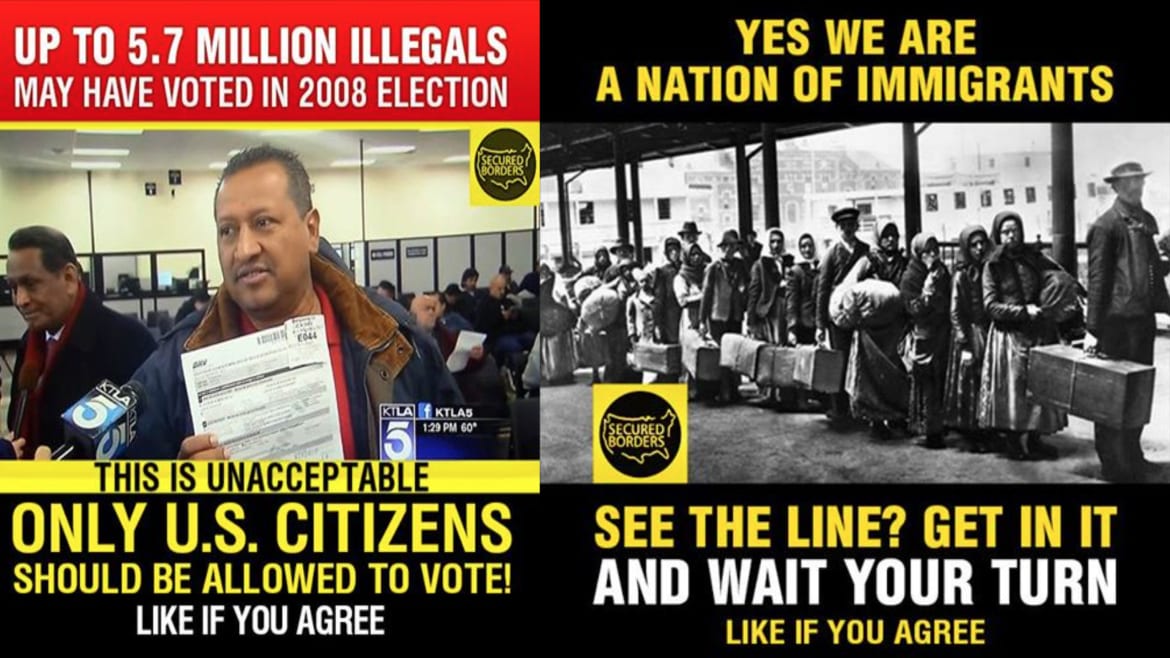

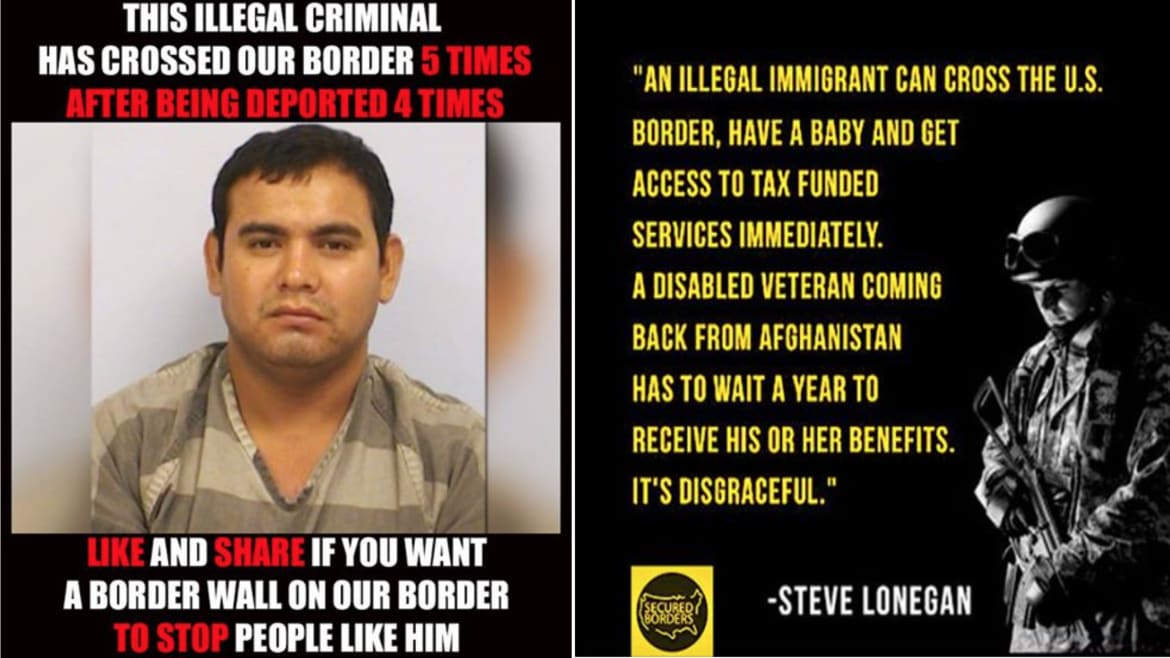
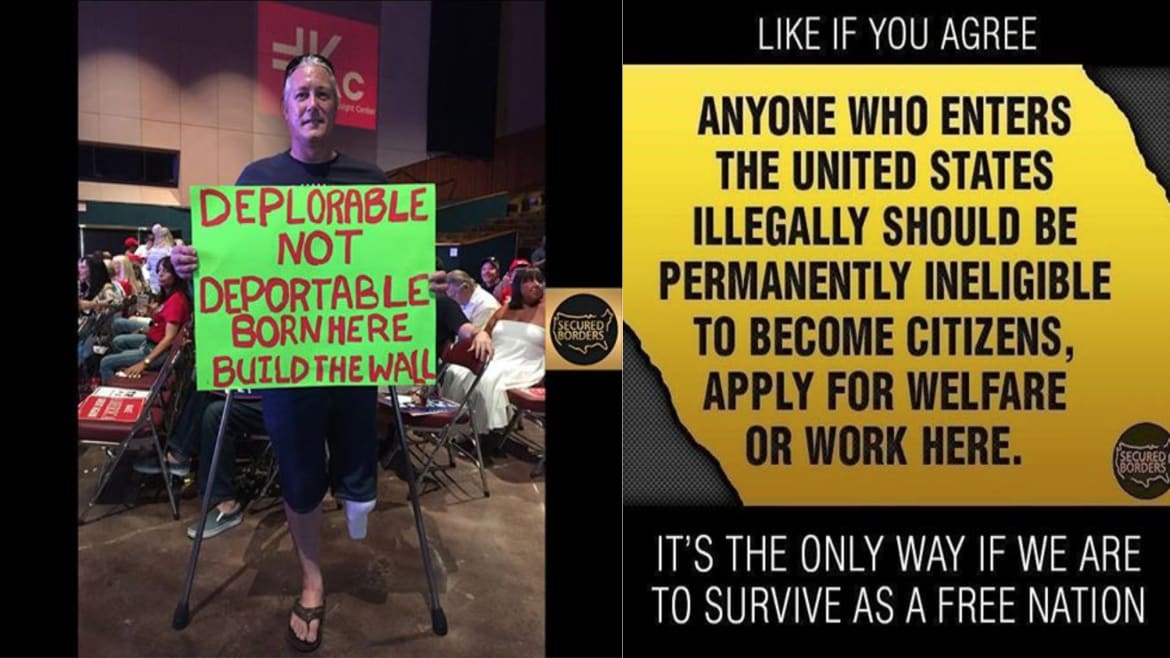
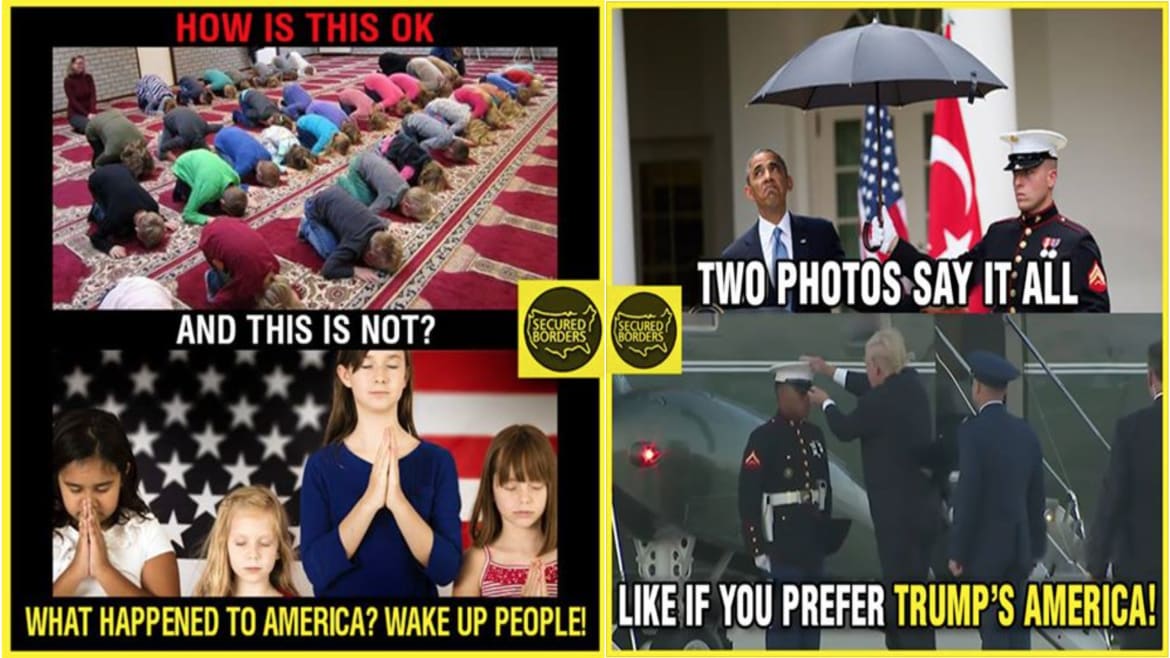
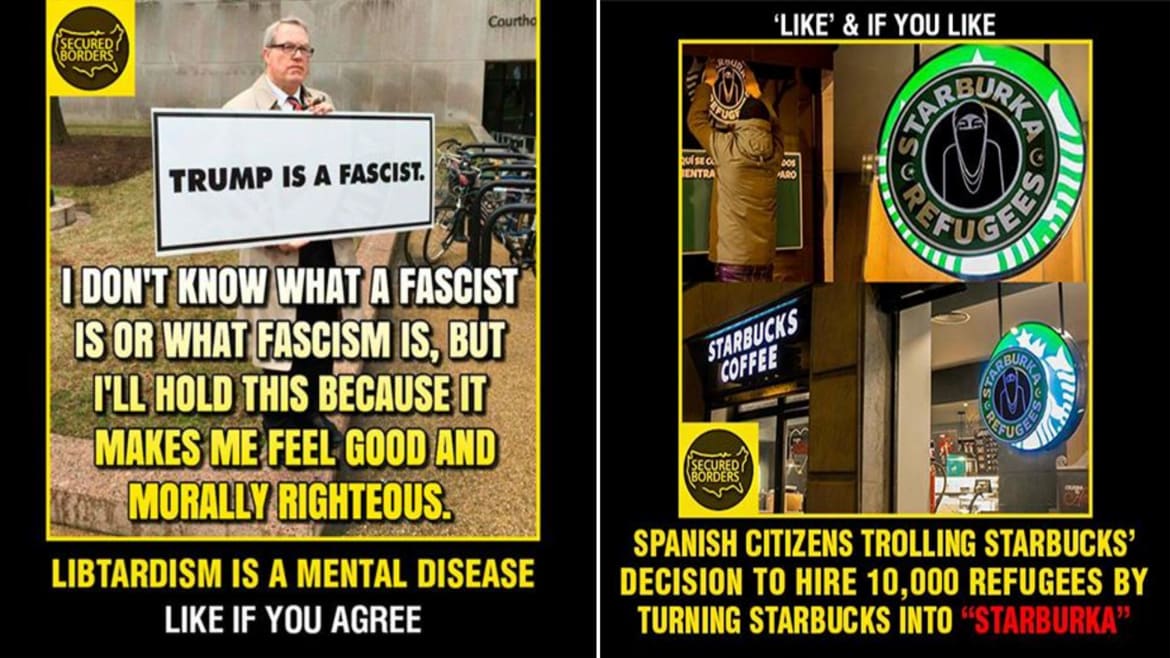

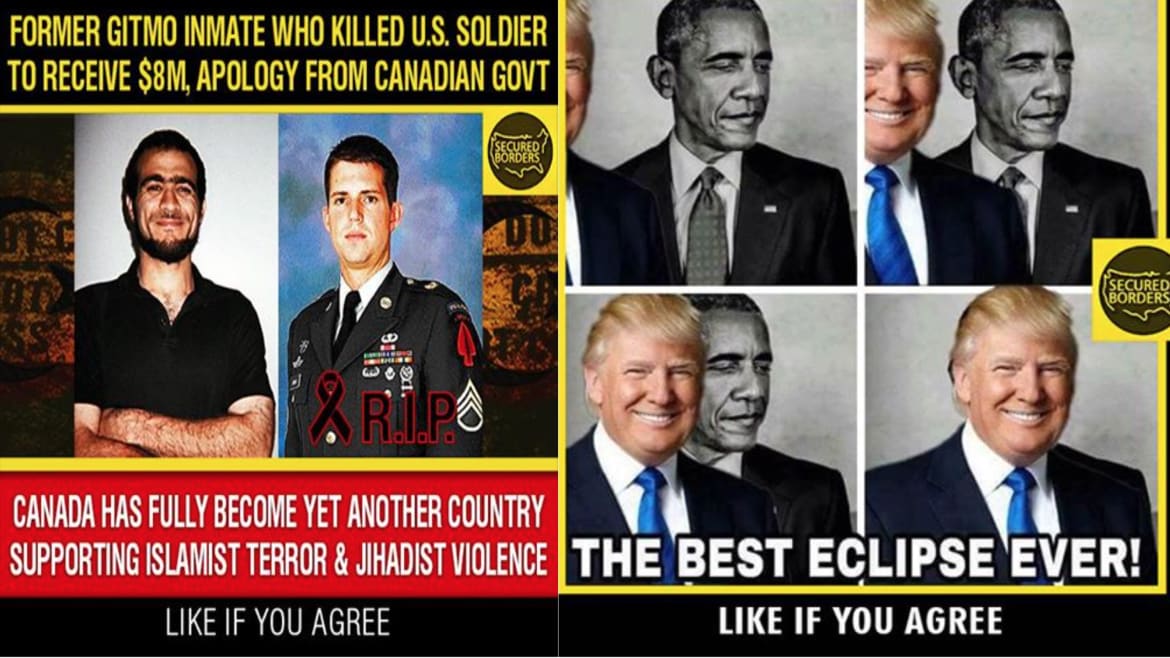
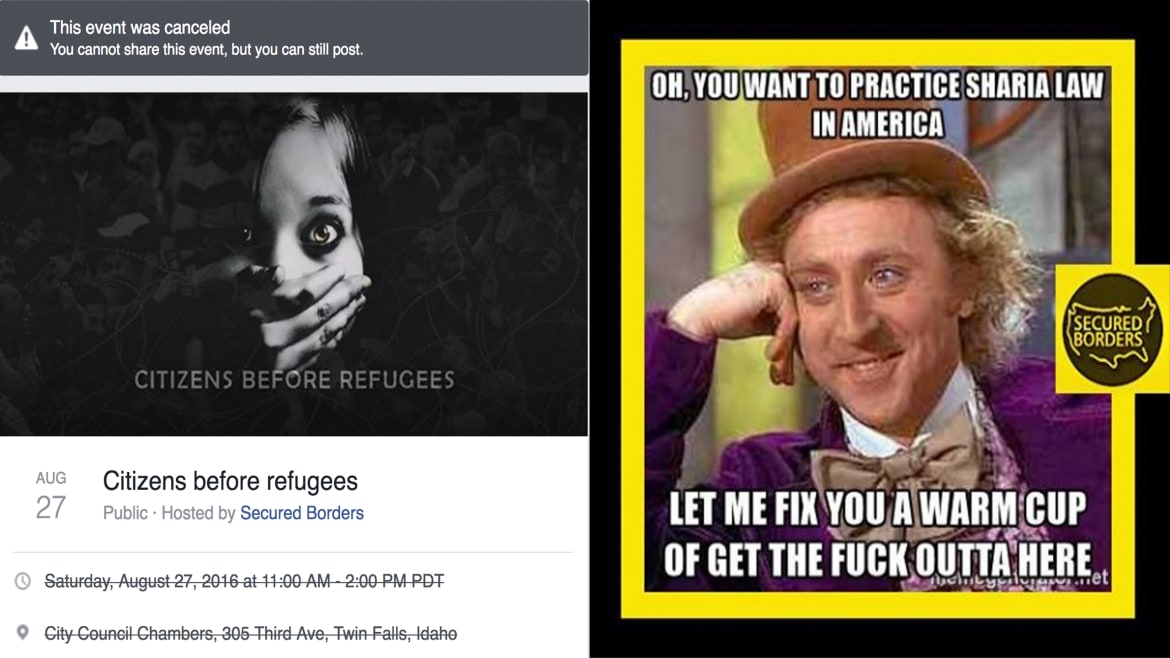

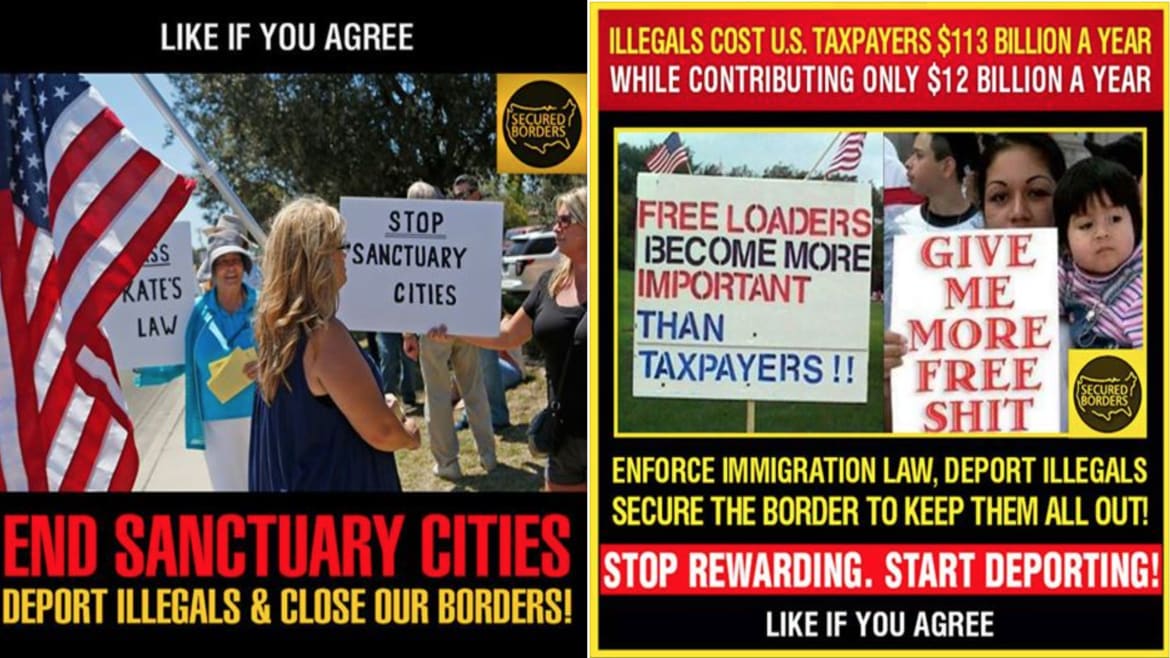

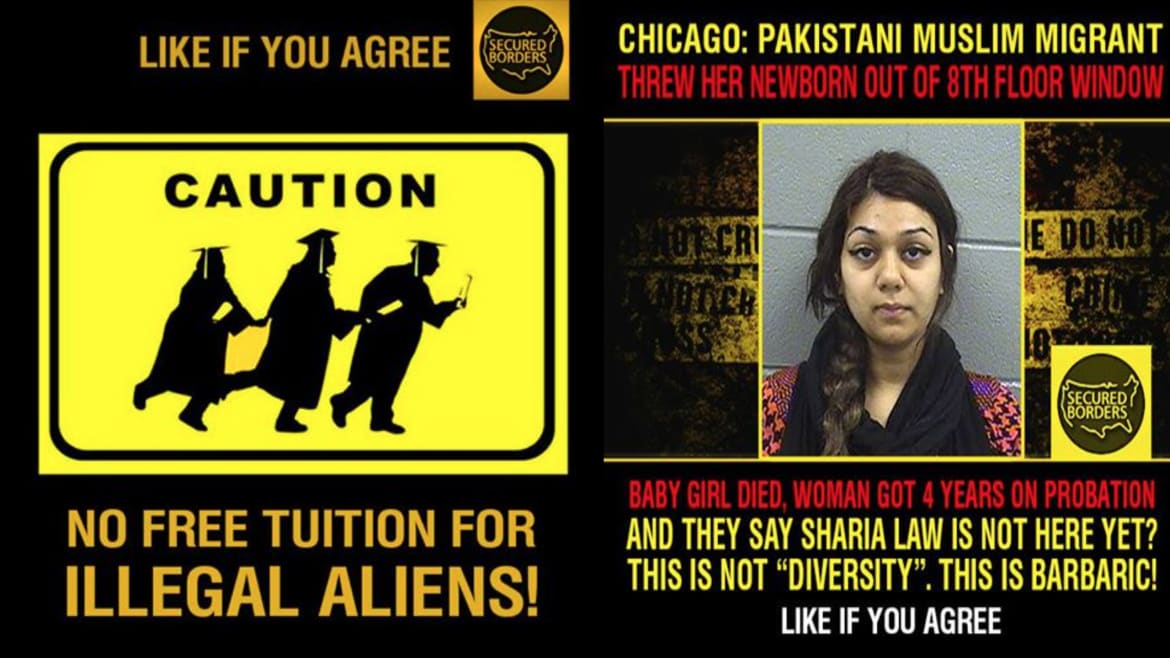





Listen to William Gheen on Rense Apr 24, 2024 talking Invasion...
04-25-2024, 02:03 PM in ALIPAC In The News